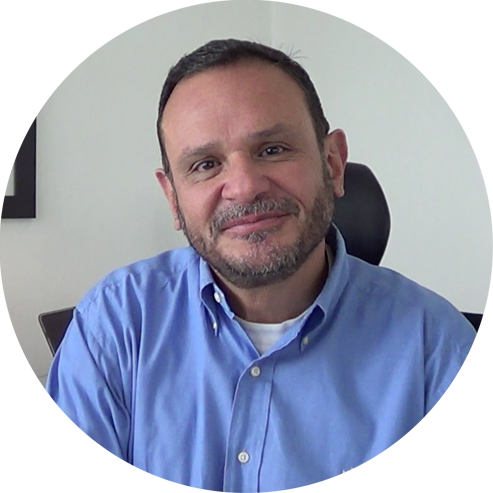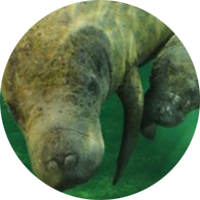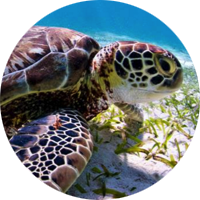The WWF is run at a local level by the following offices...
Dear friends and colleagues,
“Together Possible”… In April, we made it evident with our work in LAC. Together, we formed alliances with Animal Planet and USAID to protect Colombia´s nature and to boost the sustainable production of soy and meat in Paraguay; Brazil, Bolivia and Paraguay continued their work for the Pantanal; in Honduras, the collaborative work with Grupo Granjas Marinas resulted in certified shrimp; in Lima, government, academia and civil society celebrated the Bike Week; in Suriname, mobile apps for sustainable fisheries were developed with private sector and governmental organizations; and, in the Amazon, WWF-Brazil and the Living Amazon Initiative launched an study about the Tapajos Basin conservation. Internationally, April was a key month for the region; countries reaffirmed their commitments by signing the Climate Agreement, and the WWF World Heritage Campaign highlighted the Mesoamerican Reef. For Ecuador, unfortunately, April was a sad month due to the earthquake that devastated part of its coastal region; but the collaborative spirit of Ecuador and the world, as well as WWF-Ecuador`s, are supporting the recovery of affected people and places. We send a message of solidarity to our colleagues and partners in Ecuador, wishing a quick recovery. Thank you,

Roberto Troya
Vice-president, WWF-LAC
Colombia
WWF and Animal Planet United Their Forces for Colombia’s Nature
A two week production, a team of six professionals, a journey through Colombia’s geographical extremes and more than six months of preparations. WWF and Animal Planet united their forces for Colombia’s nature and made eight videos that will air in all Latin America in May and June.
Discover More
Paraguay
Sustainable Production of Meat and Soy
WWF-Paraguay and the United States Agency for International Development (USAID ) , are carrying forward the "Alliance for Sustainable Development" Initiative with Minerva Foods, Wildlife Conservation Society (WCS), Neuland Cooperative, International Finance Corporation (IFC), and the Association of Municipalities for the Central Chaco, among several other partners. It is an important partnership between government, private companies, producers, civil society organizations and international cooperation, which will work to promote the adoption of more sustainable production practices.
Discover More
Pantanal

El Gran Pantanal, the Challenge of Shared Management
Pantanal, world's largest freshwater wetland, shares its extraordinary biodiversity with three countries: Brazil, Bolivia and Paraguay. As part of the regional planning for the Cerrado Pantanal Program, led by WWF offices in Bolivia, Brazil and Paraguay, we boosted the first Tri-National Meeting for the Gran Pantanal Protected Areas Operators.
Discover More
Honduras
Honduras Shrimp Farms Celebrate ASC Certification
With support from WWF, Finca Granjas Marinas San Bernado farm in Honduras has successfully gained certification against the ASC standard for responsible shrimp farming. The Granjas Marinas Group operated site located in Choluteca, Honduras was successfully assessed by independent certifier Control Union Peru earlier in the year together with four of the companies’ other farms.
Discover More
Peru
Lima Celebrates the Bike Week
In the debate to improve motorized and public transport, during the 19th to 30th of April Lima celebrated “Bike Week”. This included a series of activities centered around the International Bike Day. The aim of the initiative was to promote the use of bicycles as a means of transport, promoting sustainable mobility and reducing carbon emissions. Organizations such as the Ministry of Environment (MINAM), the University of Technology and Engineering ( UTEC ), MOBILIS, a civil society organization, and WWF joined to celebrations.
Discover More
Suriname
Fishackathon Paramaribo 2016: Mobile Apps for Sustainable Fisheries
In Paramaribo (Suriname), for 48 hours 30 coders participated in the 2016 Fishackathon, and were driven to their limits to develop usable creative innovations for problems that fishermen worldwide face, in order to support sustainable fisheries. The app development centered around fish identification, lost gear mapping, vessel monitoring, and laws and regulations. The Fishackathon in Suriname was organized by WWF Guianas and IT Core, a software development company, in collaboration with the Embassy of the USA and the Ministry of Agriculture, Animal Husbandry and Fisheries. The winning Surinamese application was digitally sent out for international judging. The international winners are announced on World Oceans Day, June 8th, 2016. One team will receive a $10,000 cash prize, provided by Virgin, and one team’s creation will be further independently developed through a U.S. government contractor.
Discover More Contact
Ecuador
Major Earthquake In Ecuador
On April 16, 2016, an earthquake of 7.8 magnitude struck the northern coastal region of Ecuador. According to the official report of the National Office of Risk Management, 660 people were reported dead, 15 missing and 30,223 in temporary shelters. It is estimated that 720,000 people are in need of humanitarian aid. In the short term WWF Ecuador intends to focus its efforts on providing humanitarian assistance. In the medium term, we intend to join the efforts for the reconstruction of the affected areas, providing information and resources, such as toolbox for Repair and Reconstruction Verde (GRRT) developed by WWF in collaboration with the Red Cross, to ensure that environmental parameters are included in the process and thus support the affected coastal communities to increase their social, economic and environmental resilience.
Contact How To Help
Living Amazon Initiative
Integrated Approach: Solutions for a More Sustainable Hydropower Planning
WWF-Brazil, with support from WWF Living Amazon Initiative, has release the publication A conservation vision for Tapajos basin. This is part of a broader initiative designed to face the threats posed by the expansion of unsustainable hydroelectricity generation in the entire Amazon region. The Tapajos river is the only big right bank tributary of the main Amazon river that has not been blocked by very large scale hydropower dams. Currently, however, the Tapajos River Basin is being targeted as the great frontier for hydropower supply and economic development of the Amazon. Find out more about solutions proposed by WWF reading this publication. Available in English and Portuguese.
Discover More
Climate & Energy
Climate Deal Signing Opens New Era for Action
Countries gathered at United Nations headquarters to sign the Paris Agreement, the first global deal on climate change. The Paris Agreement includes a commitment to keep global warming to 1.5° Celsius. It is vital that countries remain focused on this goal and immediately increase their national efforts to achieve it, along with working to get the deal to enter into force.
Discover More
Global Campaign
Together, Saving Our Shared Heritage
114 natural World Heritage sites are under threat from harmful industrial activities like mining, oil and gas drilling, and construction of large-scale infrastructure. On April 6, WWF launched a campaign to defend these natural treasures, "Together, Saving Our Shared Heritage". Tha campaign highlights the threats to tree globally emblematic sites, one of them is the Belize barrier reef World Heritage Site.
Discover More
···
Together, Saving Our Shared Heritage
In the Media
Campaign in the Media
~200 articles in Spanish published in digital media
+125 million people reached
Featured article:

Interview with Roberto Troya, WWF-LAC
10 million potential readers
Campaign in the Social Media
+760K potential impressions in Twitter (@WWF-LAC)
+165K people reached by WHiD posts in Spanish in Facebook (WWF)
Featured posts:

World Heritage in Danger
+287K potential impressions

Save the Reef
+56K people reached (organic)
Data: April 4 - 19